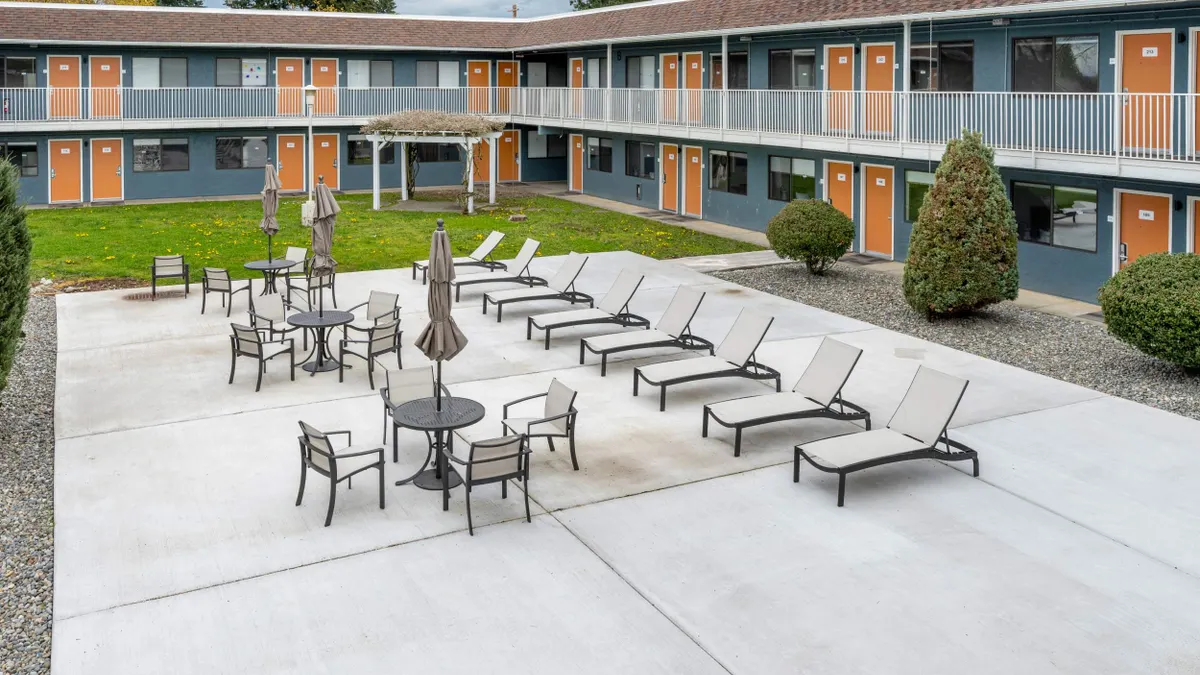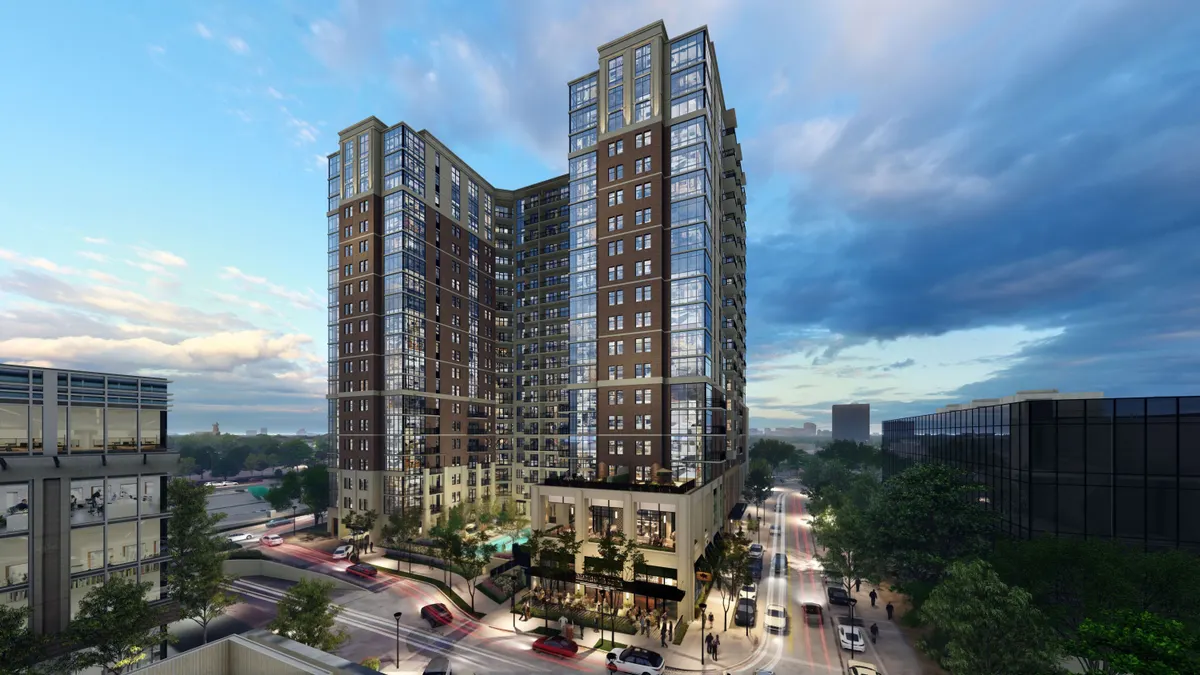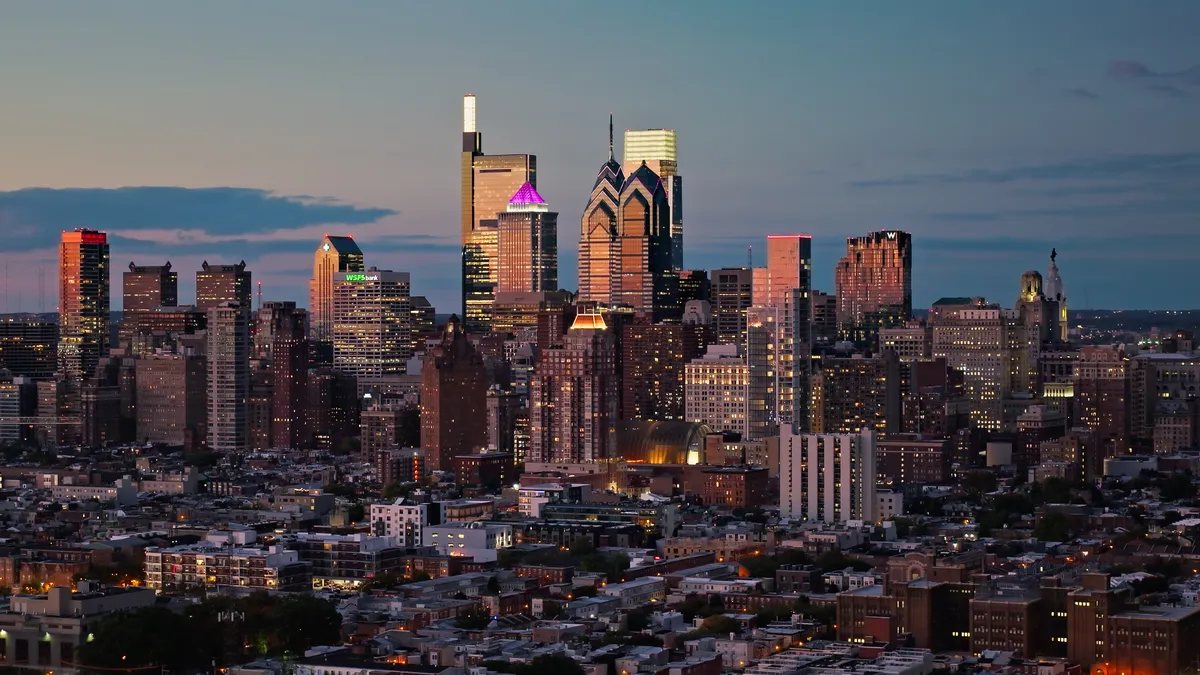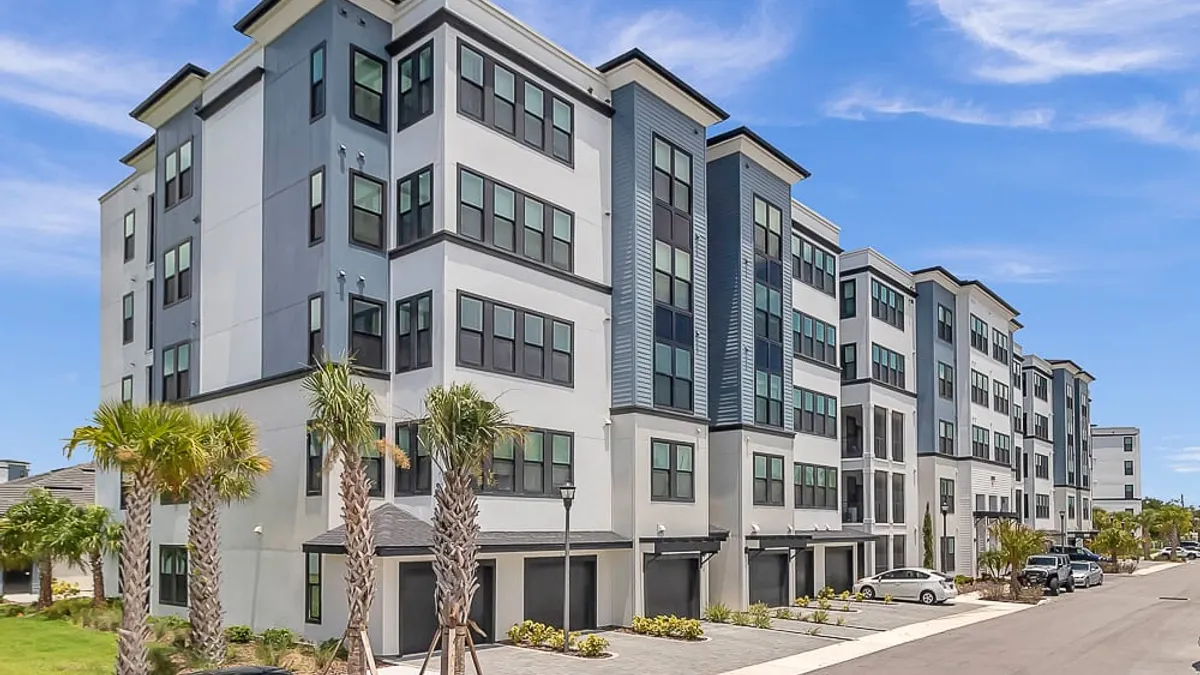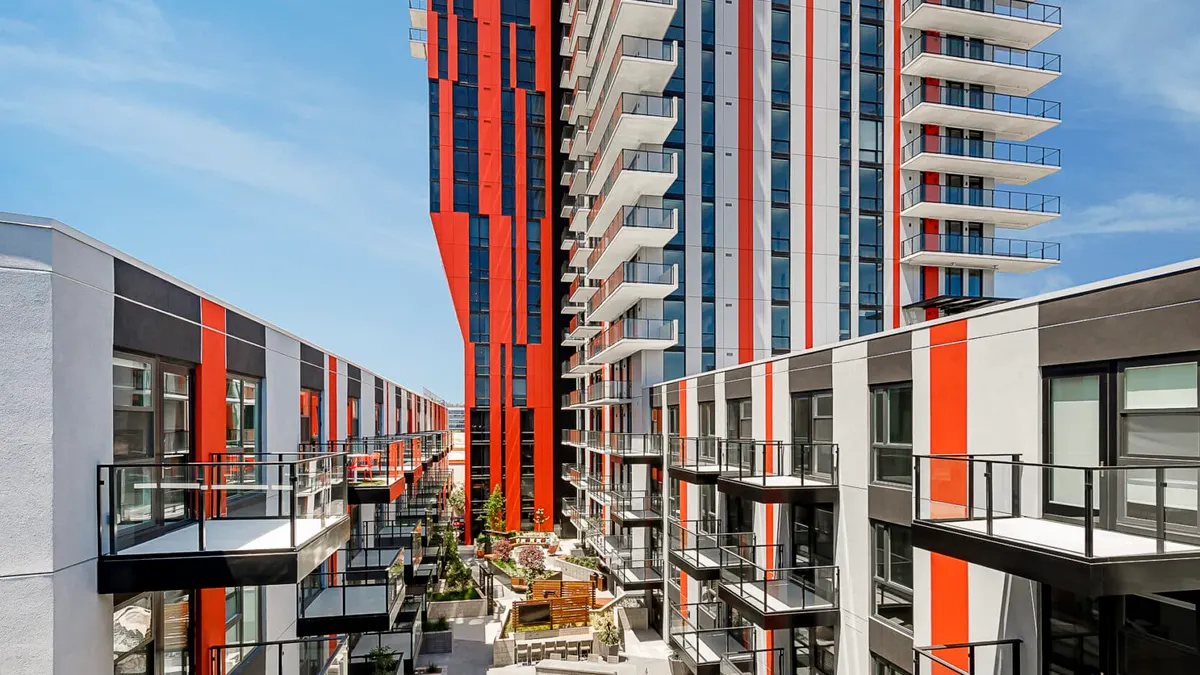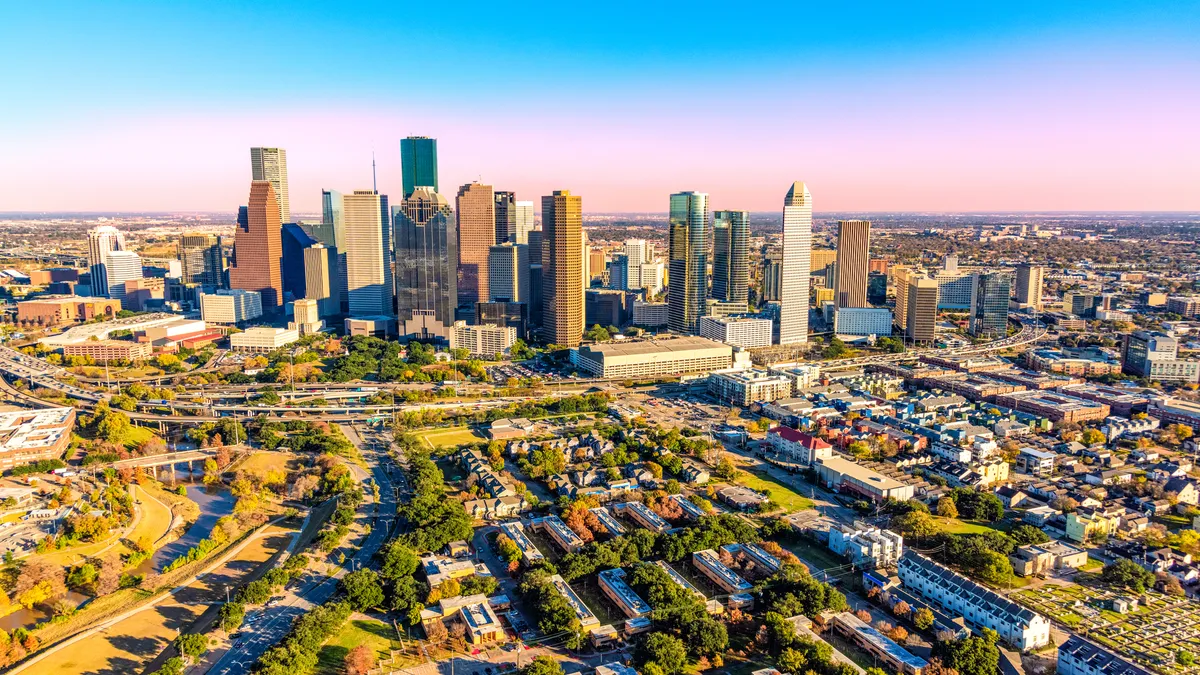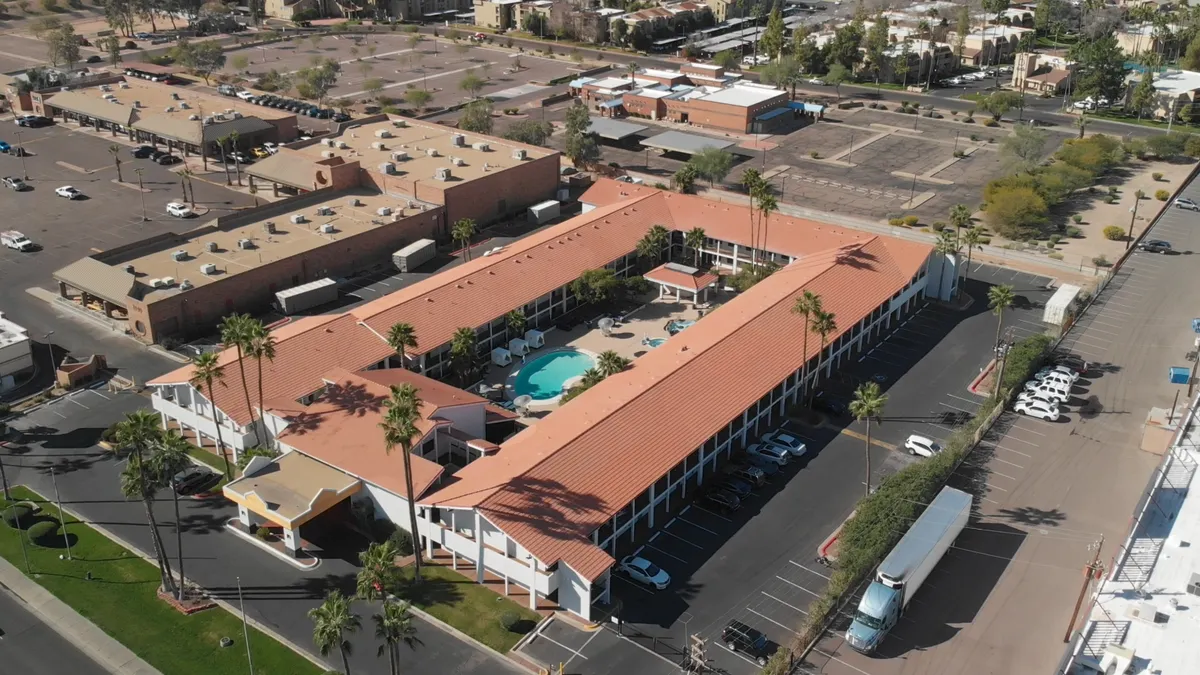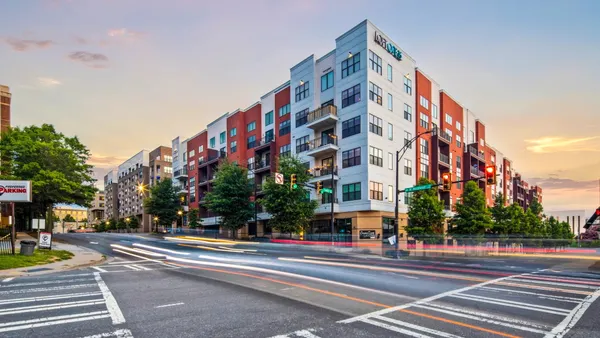Over the past five years, office conversions have garnered significant attention, and it's easy to see why. As more Americans started to work remotely in 2020 and 2021, developers began to look for ways to better utilize that space.
Housing has emerged as a top use, especially as rents have skyrocketed. Office-to-multifamily conversion projects increased from 12,100 units in progress in 2021 to 71,000 units by the beginning of 2025.
However, Ryan Sudeck, CEO of Sage Investment Group, believes another type of conversion can be even more effective in addressing affordable housing challenges.
Sudeck’s Kirkland, Washington-based firm acquires underutilized, off-market hotels and motels and transforms them into workforce studio apartments. The company now has 27 properties in six states.
“By and large, the properties were built in the 1970s, 1980s and 1990s, although we do have some newer properties, a Marriott Residence Inn in Houston that was built in the 2000s,” Sudeck told Multifamily Dive.
Sage owns assets in Washington state, Texas and the Carolinas, and plans to expand into Denver and Orlando, Florida. “We want to make sure we have good population density around the properties,” Sudeck said.
Sage, which is delivering 13 conversions in 2025, intends to hold its properties for five years. The firm prefers hotels with exterior corridors because Sudeck believes they allow for easier transport of construction materials and provide greater separation between residents.
“They feel like they've got their own space,” Sudeck said. “They also don't smell each other's cooking.”
Here, Sudeck talks with Multifamily Dive about the transaction pipeline for hotel properties, financing those assets and the impacts of tariffs.
This interview has been edited for brevity and clarity.
MULTIFAMILY DIVE: Are these generally distressed properties that you’re buying?
RYAN SUDECK: That certainly happens. We recently acquired a portfolio where we paid less than 50 cents on the dollar for what it had last transacted for, about three years prior. So we see a lot of distress.
There are a lot of ways that distress comes about in hospitality. Hotels fall on hard times. They can't afford a property improvement plan to refresh the property, so they drop a tier, and it's a slippery slope. So in most situations, we're buying distress.
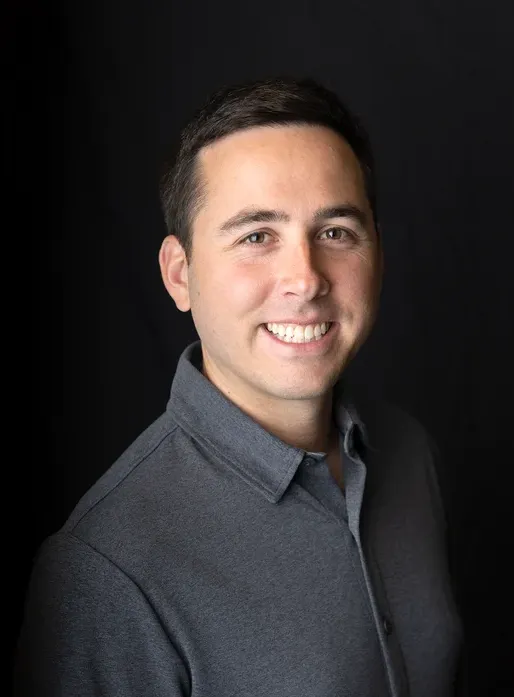
There is also a lot of Indian family ownership. They immigrated in the 1970s, 1980s and 1990s, ran these hotels, and raised their kids. Their kids are well educated now. Now, the mom or dad or grandfather or grandmother moves on from the family business. We find that these are some of the sellers that we also buy from.
Who are you competing with for these properties?
There aren’t too many groups doing hotel conversions. Among the larger groups still active in this space, there are certainly hotel operators that will upgrade them.
Typically, we can pay more than hotel operators because our business model is to capitalize on the fundamental difference between what a hotel is worth and what a multifamily property is worth. Whereas a hotel operator is constrained by the cap rate of a hospitality asset.
How many units do you prefer to convert in one property?
We're looking for something big enough where we can have on-site property management — usually over 100 units. But we’re not doing more than 200 units because we're typically delivering fully amenitized studio units into the market, and we don't want to deliver too many and oversaturate the market.
What financing are you using once these properties are stabilized? Are you using Fannie Mae and Freddie Mac?
We have not yet used agency debt as a refinance vehicle. We're planning to probably do that on one of our assets coming up. Typically, our takeout financing is from local banks and credit unions. They love this type of product.
With our most recent refinance, we secured a 35-year amortization term. Given the significant upgrades we're making to the properties themselves, banks are willing to give us a longer shelf life on the property itself.
How are you incorporating the kitchens?
The hotels we buy do not already have kitchens in them. We're installing the kitchens, and we typically include a full-size refrigerator, a full-size range and a microwave. The range obviously comes with a stovetop too. And so they live like a fully amenitized studio unit.
Then we take all the hotel common spaces and trick them out with various amenities, fitness centers, pools, yoga studios, lounges — areas for folks to form community.
How are tariffs affecting your business?
One of our shipments got hit with a tariff of $33,000, but that's across $45 million worth of spend this year. So, it has had a relatively minor impact. There has been a lot less development by and large, so there is a lot more availability from subs.
We had been buying offshore, and for the year of 2025, we brought some of those relationships onshore at the same prices we were getting internationally. We were able to negotiate that. So that helped mitigate the effect.
We usually budget for an 11%-ish contingency over our budget. We have three properties that are scheduled to deliver in the next couple of weeks, and we're 1.2% over budget, which is well within our contingency.
Click here to sign up to receive multifamily and apartment news like this article in your inbox every weekday.



